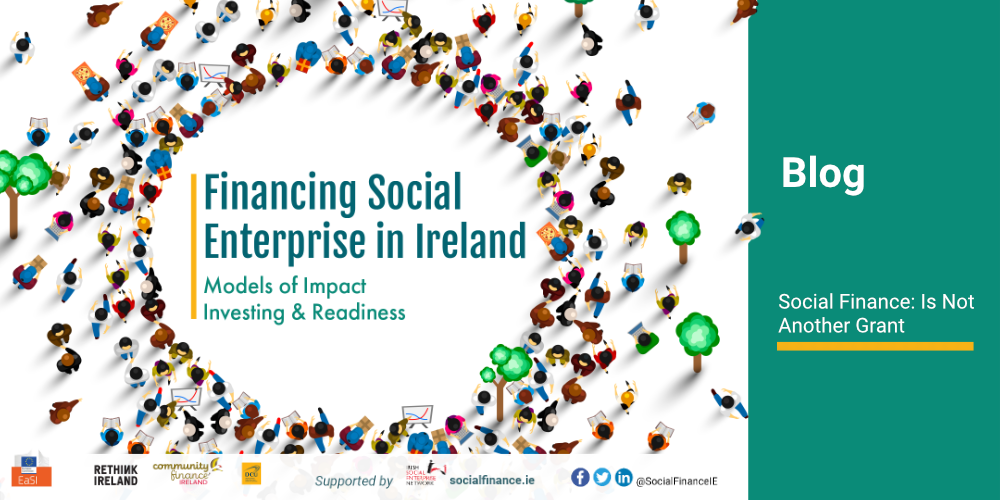A survey on social finance (Sep. ‘21), commissioned by DCU and responded to by almost 200 social enterprises across Ireland, revealed a number of interesting findings. One such outcome was that half of the respondents source their finance directly from the conventional banking sector, as opposed to applying for support via indigenous social finance providers such as Community Finance Ireland and Clann Credo, which were established specifically to cater for that market, and ensure profits are recycled back into the sector.
The statistic is interesting in that it has been reflected upon differently in various quarters. Some would argue that the fact social finance now accounts for almost 50% of the sample is a significant step in the right direction. If the total amount loaned by social finance providers across the island is just somewhere north of €200m over the last 20 years, then this relatively small amount (in banking terms) has punched well above its weight.
Another mind-set would take a more pessimistic view of the finding. After 20 years of the provision of social finance in the Republic, there remains either a stark lack of awareness of the product’ existence, or, more worryingly, it means that the offering in its current structure may be incompatible with the needs of a substantial element of the market.
In either case, the present research project being undertaken by Rethink Ireland, DCU and Community Finance Ireland: “Financing Social Enterprise in Ireland – Models of Impact Investing & Readiness” aims to address both possible reasons behind this more dimly held view of the current state of play.
Through a series of customer focused product workshops, investor readiness sessions, and round table discussions with potential capital providers to the sector, moves are afoot to at least mitigate that low level of awareness, as well as making products more accessible for those at the margins when it comes to risk appetite.
